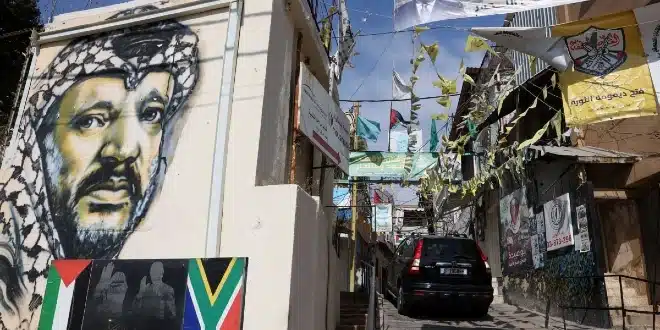A Lebanese government official confirmed on Friday that an agreement has been reached with Palestinian President Mahmoud Abbas to begin the phased disarmament of Palestinian refugee camps in Lebanon. The initiative is set to commence in mid-June, starting with camps located in the capital, Beirut, before expanding to other areas across the country.
The official, speaking on condition of anonymity due to the sensitivity of the discussions, indicated that the disarmament strategy was jointly approved during Abbas’s visit to Beirut. The plan marks a significant shift in policy, aimed at asserting Lebanese state authority more comprehensively across its territory, particularly in areas that have historically remained beyond its direct control.
Longstanding Status of Armed Camps to Change
Palestinian refugee camps in Lebanon have, for decades, operated under a unique arrangement. The Lebanese Army traditionally refrains from entering these camps, leaving internal security to be managed by Palestinian factions themselves. These factions include President Abbas’s Fatah movement, the Islamist group Hamas, and other armed organizations.
This arrangement has often been a point of contention in Lebanon’s domestic affairs, especially given sporadic outbreaks of violence within the camps and their complex political dynamics. The new agreement aims to change this structure by initiating a systematic disarmament process and transitioning the camps toward increased civilian oversight.
Joint Committee and Government Oversight
The breakthrough was reached during the inaugural session of a newly formed Lebanese-Palestinian committee established earlier in the week to address the security and administrative challenges within the camps. The committee includes key figures such as Lebanon’s Director of General Security Hassan Choucair, Ramez Dimashqieh who heads the Lebanese-Palestinian dialogue committee, and Azzam al-Ahmad, the Secretary-General of the Executive Committee of the Palestine Liberation Organization (PLO).
Prime Minister Nawaf Salam also took part in the discussions, underlining the Lebanese government’s commitment to the process. Following the meeting, the Prime Minister’s office released a statement confirming that a detailed schedule for the handover of weapons had been agreed upon. The statement also outlined parallel efforts to improve the socio-economic conditions of Palestinian refugees residing in Lebanon.
Historical Context and Refugee Conditions
Lebanon currently hosts an estimated 222,000 Palestinian refugees, as reported by the United Nations Relief and Works Agency (UNRWA). These individuals, many of whom are descendants of those displaced during the 1948 establishment of the state of Israel, live predominantly in 12 designated refugee camps scattered across the country.
Conditions in the camps are often cramped and underdeveloped. In addition to limited infrastructure and services, residents face a range of legal and economic restrictions, including barriers to formal employment and property ownership. Addressing these long-standing social and economic grievances is seen as a critical component of the disarmament strategy, as integration and support are expected to reduce dependency on armed groups for protection and basic governance.
Next Steps and Implications
With the scheduled disarmament beginning in June, authorities are preparing for a gradual process that will likely unfold over several months. While the Beirut camps are the initial focus, the plan will expand in stages to include camps in other regions.
The agreement represents a notable development in Lebanon’s efforts to assert full sovereignty and stability. For Palestinian leadership, it also reflects a willingness to engage in collaborative governance and security reform, potentially setting the stage for improved relations with the Lebanese state and greater support for the refugee population.
The initiative is expected to be monitored closely by regional actors and international agencies, given its significance for domestic security and refugee affairs in Lebanon.


